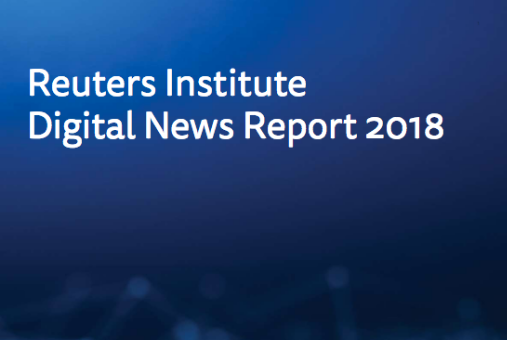
The 2018 Digital News Report from the Reuters Institute for the Study of Journalism (RISJ) surveyed four Latin American countries and found that in each case, a majority of respondents are accessing their news from their smartphones.
The International Center for Journalists (ICFJ) recently published a contemporary guide on the ethical principles that should govern today's journalism given the context of the digital media era.
As they have every year since 1993, when UNESCO proclaimed May 3 as World Press Freedom Day, journalists and freedom of expression advocates in Latin America and around the world gathered at conferences and rallied online to discuss the importance of press freedom and ways to the threats it faces.
The Knight Center for Journalism in the Americas is pleased to announce the publication of its latest free ebook, “Innovators in Latin American Journalism.”
Numerous television and radio news outlets in Nicaragua were attacked or experienced signal interruptions during coverage of the wave of protests that erupted throughout the country due to a reform to the Social Security Law by the government of President Daniel Ortega.
When I founded Nómada, the media outlet of which I am the director and main shareholder, I hardly imagined just how difficult it could be to finance quality journalism. Four years later, in the business and financial field, we are beginning to see the light at the end of the tunnel thanks to our business model.
The goal with this article is to explain how can Design Thinking can help you become a better digital journalist, with a business mindset and collaborative skills. This has helped me a lot, and I hope it helps you, too.
The Colombian media company Publicaciones Semana S.A. will not have to reveal the sources of information for an investigative report published in its magazine Dinero.
Venezuelans surf the net with the lowest internet speed in South America.
Journalist and political activist Fernando Villavicencio and former congressman Cléver Jiménez, who were prosecuted criminally at the beginning of 2014 after being taken to court by then-Ecuadoran president Rafael Correa as a result of a journalistic investigation, were declared innocent on Feb. 22 by the Criminal Court of the National Court of Justice.
Germán Andino was in his teens when the gang war in Honduras began at the end of the 90s. He experienced first-hand, in his own neighborhood in Tegucigalpa, the increase in violence and he knew members of these criminal groups closely.
Since March 2016, a pink two-story, 300-square-meter house on a tree-lined street in Botafogo, in the southern area of Rio de Janeiro, has been a haven and a venue for both Brazilian and foreign journalists and for those interested in journalism and the ongoing changes surrounding the profession.